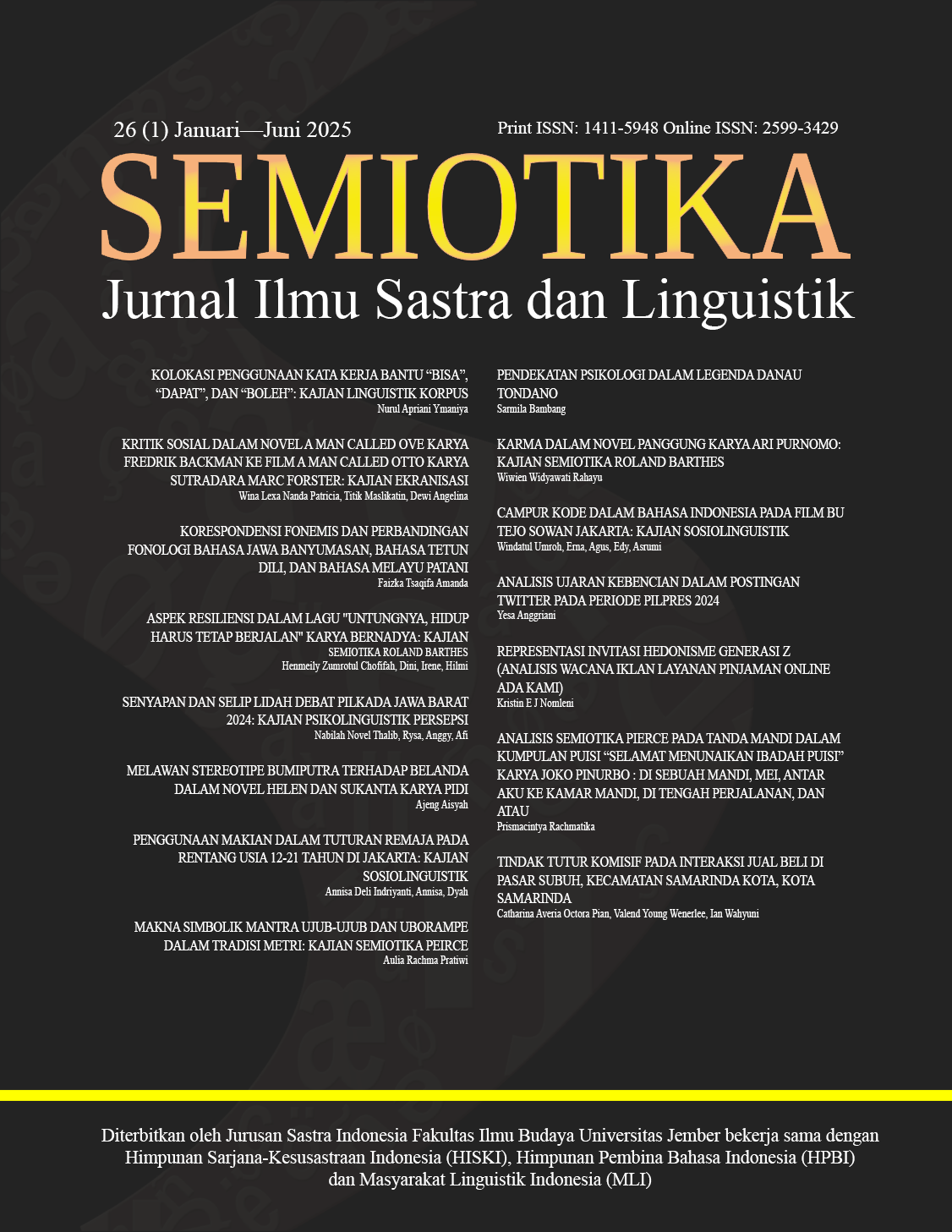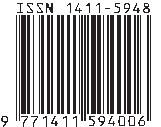PENDEKATAN PSIKOLOGI DALAM LEGENDA DANAU TONDANO
Keywords:
Lake Tondano, social conflict, legend, social psychology, story structureAbstract
The Legend of Lake Tondano is a folk tale from North Sulawesi that contains social psychological values. This research aims to analyze the story structure and social psychological aspects contained in the legend. Using a descriptive qualitative method, this study found that the Legend of Lake Tondano encompasses theme, plot, characters, setting, point of view, and message. In terms of social psychology, elements of social thought, social influence, and social relationships were found, reflecting the conflict between tradition, love, and individual responsibility towards society. The results of this study show that the Legend of Lake Tondano is not only entertainment but also a reflection of the social life of the community.
Downloads
References
Ainiyah, S. 2012. “Kajian Psikologi Sosial Novel Elang Karya Kirana Kejora”. Universitas Jember.
Anggito, A., & Setiawan, J. 2018. Metodologi Penelitian Kualitatif. Jejak.
Arifin, B. S. 2015. Psikologi Sosial. Pustaka Setia.
Devidoff, L. 1981. Introduction to Psychology. New York: McGraw-Hill.
Woodworth, R. S., & Marquis, D. G. 1957. Psychology. New York: Henry Holt and Company.
Morgan, C. T. 1984. Introduction to Psychology. New York: McGraw-Hill.
Sartain, A. Q. 1967. Psychology: Understanding Human Behavior. New York: McGraw-Hill.
Santoso, S. 2010. Teori-Teori Psikologi Sosial. Refika Aditama.
Nurmala, R. T., & Suherman, A. 2021. “Aspek Sosial dalam Kumpulan Cerita Pendek Layung Karya Aam Amilia”. Lokabasa, 12(2), 169-180.
Yusmarani, R. 2017. “Analisis Psikologis Sosial Tokoh Utama dalam Novel Napas Mayat Karya Bagus Dwi Hananto”. Universitas Muhammadiyah Malang.
Downloads
Published
Issue
Section
License
Copyright (c) 2025 Semiotika: Jurnal Ilmu Sastra dan Linguistik

This work is licensed under a Creative Commons Attribution-ShareAlike 4.0 International License.
SEMIOTIKA has CC-BY-SA or an equivalent license as the optimal license for the publication, distribution, use, and reuse of scholarly work. Authors who publish with this journal retain copyright and grant the journal right of first publication with the work simultaneously licensed under a Creative Commons Attribution-ShareAlike 4.0 International License that allows others to share the work with an acknowledgment of the work's authorship and initial publication in this journal.
Attribution-ShareAlike
CC BY-SA








